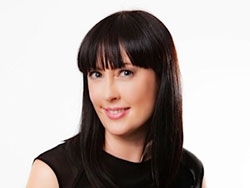Midwives for a better tomorrow.
That’s the theme of this year’s International Day of the Midwife (IDM), established by the
International Confederation of Midwives, and held around the globe each year on May 5.
Subscribe for FREE to the HealthTimes magazine
The
Australian College of Midwives (ACM) has established a Walk with Midwives for IDM to raise funds for the
Rhodanthe Lipsett Indigenous Midwifery Trust, which provides financial assistance to Aboriginal and Torres Strait Islander midwifery students.
ACM chief executive officer Ann Kinnear said more than 50 people have already registered to hold walks at Thursday Island, Gove, Byron Bay, Alice Springs, Sydney, Canberra and Adelaide, and she hopes the number of registrations will continue to increase.
“We are delighted with the response of our members and midwives all around the country in organising walks, all sorts of walks, to celebrate,” she said.
“This is the first year of the Walk with Midwives and we hope it will grow each year.”
Ms Kinnear said the day was not only a celebration of midwifery but also a chance to raise awareness about the critical role midwives play in reducing maternal and neonatal mortality and also in ensuring that women and babies have the best health outcomes in their pregnancy and birth.
“Midwives play such an important role in the lives of families and mothers during this important time in their pregnancy and birth,” she said.
“All women need a midwife regardless of whether they’re well or whether they have complications - midwives do create a better tomorrow.”
Ms Kinnear said this year’s theme resonates with the mantra of the Rhodanthe Lipsett Indigenous Midwifery Trust, which works to support Indigenous students into the midwifery profession.
Midwifery advocate Pat Brodie AM, chair of the Trust and an Adjunct Professor at the University of Technology Sydney, said the Trust assists midwifery students and also works to address the nation’s severe shortage of Aboriginal and Torres Strait Islander midwives.
Professor Brodie said Australia is home to just 200 Indigenous midwives.
“We note recent reports from the
Congress of Aboriginal and Torres Strait Islander Nurses and Midwives (CATSINaM) which identify that at least 1096 Aboriginal and Torres Strait Islander midwives are needed - 5.5 times the number we currently have,” she said.
“About four per cent of the Australian population giving birth are Aboriginal or Torres Strait Islander women and the percentage of Aboriginal and Torres Strait Islander midwives is 0.7 per cent.
“Pregnancy and childbirth is a critical moment in women’s lives and all Australians need to think about the numbers of Aboriginal and Torres Strait Islander mothers and babies who need that extra support.
“That support comes from having access to a midwife that they know and trust, which is more often than not going to be an Aboriginal and Torres Strait Islander midwife.
“We currently have a shortage and we need to address that urgently.”
Professor Brodie said the trust has provided 10 scholarships and hopes to raise more vital funds to support midwifery students into the profession as well as scholarships for postgraduate professional development.













